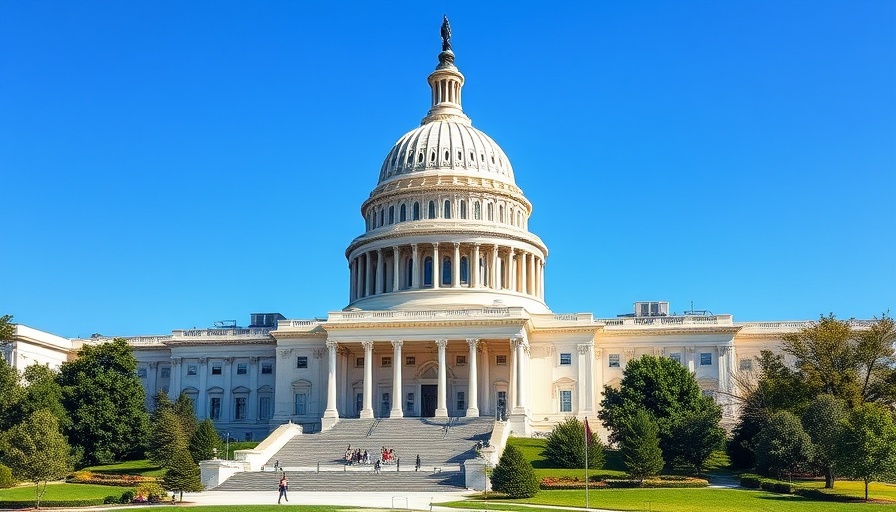
Why Tariffs Matter for Franchisees: A Costly Conundrum
In the complex world of franchising, external factors like tariffs can create unanticipated financial challenges. These tariffs, which are taxes on imported goods, ripple down to franchisees, particularly those who rely heavily on imported materials, ingredients, and equipment. For example, many franchise systems, such as restaurants and fitness centers, utilize specific items that may be subject to tariffs. Increased costs of critical supplies can quickly erode profit margins, leaving franchisees to grapple with thinning budgets and tight operational constraints.
The Five Key Risks of Tariffs on Franchise Operations
Understanding how tariffs can hurt franchisees is vital to mitigating their impact. Here, we delve into the five primary risks posed by tariffs:
1. Increased Costs of Goods and Supplies
The initial blow of tariffs is felt through the rise in costs for goods and supplies. Franchise owners, tightly managed by their franchisors, often find themselves paying inflated prices for essential items. For instance, the recent hikes on steel tariffs have meant increased prices for kitchen equipment and furniture, squeezing profit margins even further. As costs rise, franchisees are left with scarce resources to invest back into their businesses.
2. Supply Chain Disruptions
Beyond costs, tariffs disrupt supply chains. The challenge of securing goods at reasonable prices may lead to significant delays, and for franchises that promise specific offerings—say a unique menu item—the absence of a key ingredient can severely affect customer satisfaction and brand reputation. During the pandemic, we witnessed such disruptions, where franchises found themselves unable to operate optimally.
3. Elevated Initial Investment Costs
Franchisors frequently pass on increased costs to franchisees through higher initial investment requirements. This adjustment forces new franchisees to rethink their financial strategies. Higher start-up costs can lead to a reevaluation of operational budgets and timelines for profitability, making initial planning critical.
4. Reduced Consumer Spending
Tariffs don’t only affect operations; they influence customer behavior. As businesses raise prices to cover increased operational costs, consumers may cut back on discretionary spending. Franchisees in retail or dining sectors could face a drop-off in sales as potential customers tighten their belts, creating a vicious cycle of reduced demand and larger losses for franchise stores.
5. Uncertainty and Risk
The overarching challenge posed by tariffs is the uncertainty they imbue into the market. Rapid changes in tariff policies can create a murky operational landscape. Businesses need predictability for growth and planning, yet for many franchisees, the absence of clarity stifles investment and long-term strategic thinking.
A Call for Proactive Measures
Franchisees cannot afford to wait for clarity on tariff changes; they must take proactive measures to reduce exposure to these unpredictable costs. Here are some recommended strategies:
1. Diversifying Supply Sources
Whether it’s finding local suppliers or tapping into alternative markets that are not subject to the same tariffs, diversifying supply sources can hedge against tariff-induced shocks. Establishing relationships with local farmers or manufacturers can provide more resilient supply chains and potentially reduce overall costs.
2. Strategic Negotiations with Franchisors
Open dialogues with franchisors about the implications of tariffs can lead to collaborative solutions, such as temporary fee adjustments. Navigating these conversations can not only ease financial pressures but also nurture stronger partnerships.
3. Emphasizing Cost-Efficiency
Streamlining operations to enhance cost efficiency can help mitigate the higher expenses introduced by tariffs. Operational adjustments—like reducing waste or optimizing labor forces—can help maintain profitability amid rising costs.
Closing Thoughts: The Path Forward
The franchise industry stands at a precarious crossroads given the ongoing challenges with tariffs. While franchisees cannot control trade policies, they can control how they respond. Staying informed, diversifying suppliers, engaging actively with franchisors, and refining operational efficiencies are key to maintaining a competitive edge. Ultimately, collaboration between franchisors and franchisees will fortify businesses in the face of adversity—creating resilience in the franchise community.
Franchisees must recognize the reality of tariffs and their impacts. They should not only prepare but aim to turn the challenges posed by tariffs into opportunities for growth and securing long-term success.
 Add Row
Add Row  Add
Add 




Write A Comment